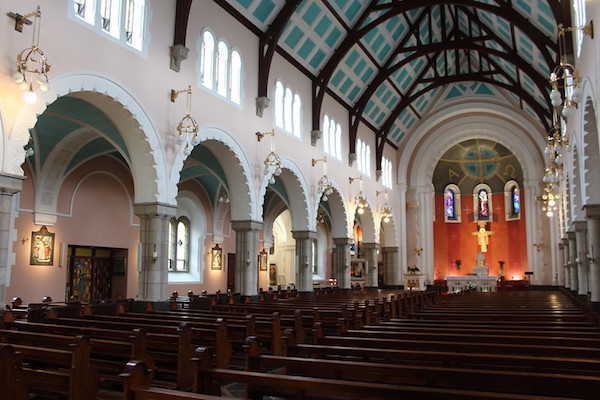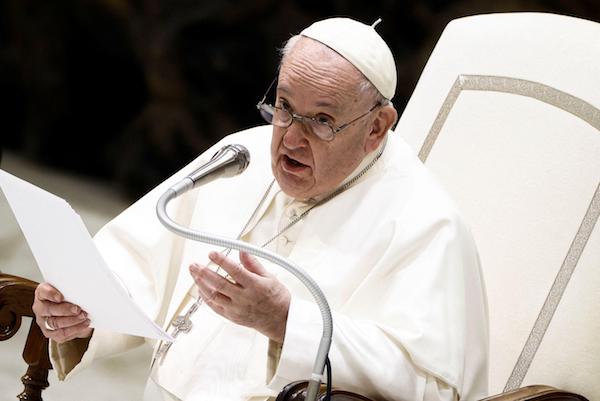Pope Francis has voiced his concern about the “weakening of democracy” in many parts of the world, including Brazil and across the Americas, where he said political polarisation is fuelling social conflicts.
The 86-year-old pontiff made his remarks during an annual speech to diplomats accredited to the Holy See, which is a moment for the Pope to lay out his foreign policy priorities.
Describing the weakening of democracy, Francis referred to the events in Brazil, where supporters of former President, Jair Bolsonaro, stormed the country's Congress, the Supreme Court and the presidential palace on 8 January.
The scenes were reminiscent of the 6 January 2021, when supporters of Donald Trump stormed the Capitol in Washington DC.
It comes after left-wing President Luiz Inácio Lula da Silva defeated the far-right incumbent Bolsonaro in Brazil’s elections in October. Lula has accused Bolsonaro of encouraging the rioters' actions on social media.
“It is a source of concern that, in many parts of the world, there is a weakening of democracy and of the breadth of freedom that it enables, albeit with all the limitations of any human system,” Francis told ambassadors in his 9 January 2023 speech in the Vatican’s apostolic palace.
“In many areas, a sign of the weakening of democracy is heightened political and social polarisation, which does not help to resolve the urgent problems of citizens.
“I think of the various countries of the Americas where political crises are laden with tensions and forms of violence that exacerbate social conflicts.”
Francis went on to mention what has happened “in the latest hours in Brazil”, the recent turmoil in Peru, where democracy is at reportedly at breaking point, and instability in Haiti.
The Church became a more vocal defender of democracy following the Second Vatican Council, which enshrined support for the separation of Church and state, and freedom of religion. The Pope has also been a strong advocate for media freedom.
During his speech, Francis also reiterated his opposition to abortion and the death penalty, including its use in Iran.
The Iranian regime has executed protesters who have taken to the streets to demonstrate against the imposition of Islamic law, lack of freedom of expression, the economic crisis and the suspicious death of 22-year-old woman Mahsa Amini.
The Pope said the recent protests in Iran are “demanding greater respect for the dignity of women” and that when democracy is weakened “it is women or ethnic minorities who often pay the price for this”.
The Pope cited St John XXIII’s 1963 social encyclical Pacem in Terris, written 60 years ago when the Cuban missile crisis threatened the destruction of the world.
“Sadly, today too, the nuclear threat is raised, and the world once more feels fear and anguish,” the Pope said, adding that this made the encyclical “extremely timely”.
Francis called for negations for the Iran nuclear deal to be resumed while pointing out that the war in Ukraine, where the possibility of Russia using a nuclear weapon has been raised, is a conflict that involves the whole world.
The Pope repeated that a “third world war is taking place” in a piecemeal fashion with numerous global conflicts and re-iterated the immorality of possessing nuclear weapons.
The Pope also looked ahead to his forthcoming visit to the Democratic Republic of Congo and ecumenical pilgrimage to South Sudan with the Archbishop of Canterbury and the Moderator of the General Assembly of the Church of Scotland.
“Together we desire to unite ourselves to the plea for peace by the country’s people and thus contribute to the process of national reconciliation,” he said of the South Sudan visit, which will take place from 3-5 February.
Francis explained that John XXIII, who called the 1962-65 Second Vatican Council but died nine months after it started, set out four pillars to regulate relationships between individuals and political communities: truth, justice, solidarity and freedom.
To read the speech in full: https://www.vatican.va/



 Loading ...
Loading ...